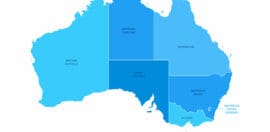The importance of investing in education

6 May 2021 at 7:00 am
Education is a powerful antidote to inequality. Yet, inequalities are preventing some people from accessing an affordable education. This is why Bendigo and Adelaide Bank developed its scholarship program, writes Bruce Argyle.
Tackling inequality is one of the most pressing priorities of the not-for-profit sector, whether it is responding to the symptoms of inequality or advocating for measures that address inequality’s root causes.
One of the most powerful antidotes to inequality is education. It is the strongest predictor of a person’s life expectancy and their success in life. Yoka Brandt of UNICEF argues that for every year a person is in formal education, their income increases by 10 per cent and their country’s GDP increases by 18 per cent. Globally, if every child learned to read, 170 million fewer people would live in poverty. The empowering qualities of education are part of the reason equitable access to it is enshrined in the Universal Declaration of Human Rights.
Benjamin Franklin once said that an investment in knowledge pays the best interest. This interest benefits not only the student but also society at large. Societies with higher rates of education are generally healthier, have higher rates of economic stability, lower crime, and greater equality.
These benefits might explain the growing demand for higher education. In 2016, 41 per cent of 19 year olds were enrolled in higher education, more than double the rate in 1989. Thirty-nine per cent of Australians now hold a university degree, compared to just 7.9 per cent in 1989.
Despite this, inequalities can prevent people having access to good quality, affordable education, or can adversely impact students who may be starting from a position of disadvantage. First-in-family students; students working part-time to pay their living expenses; rural students needing to relocate; students with caring responsibilities; and students for whom English is not their first language can all experience additional challenges while studying.
This is why Bendigo and Adelaide Bank developed its scholarship program. This year, more than $1 million has been awarded to 272 students across Australia to help cover the costs of tertiary education. Since the program began in 2007, more than $10.2 million has been invested in the education of 1,148 students, many of whom faced disadvantage or barriers to study.
Spanning seven categories, the 2021 program has become one of the largest privately funded and best targeted scholarship programs in Australia, a program that will continue to nurture significant intellectual capital across the community.
Amber Jepsen is one such student. Undertaking a Bachelor of Arts degree at the University of Melbourne, Jepsen hopes to enter the psychology field as a way of giving back to her community.
“Throughout my life, I have experienced many physical and mental challenges that have seen me rely completely on the support of friends, family and medical professionals,” Jepsen said.
“I understand the overwhelming impact that generosity, compassion and selflessness can have on a person’s life. For this reason, I aspire to use my education to develop a career that helps change someone’s world for the better.”
It is easy to see how investment in one person’s education can continue to generate positive outcomes for generations to come.







